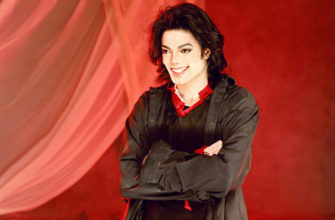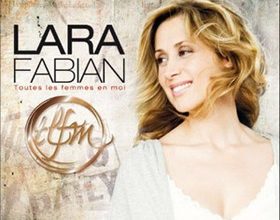Continue Learning about Physics
What is the plural form for physics?Physics is both singular and plural.
What are the branches of modern physics?The Branches of modern physics are mainly 2.1)Quantam Physics2)RelativityThere is also classical physics. as a bonus the branches of classical physics is mainly.1) Mechanics2) Electromagnetism3) Thermodynamics.P.S. In both modern and classical physics there are more than those branches given but these are like the main ones.There are seven branches of modern physics. These branches are quantum physics, relativistic physics, low-temperature physics, condensed matter physics, atomic and nuclear physics, solid-state physics, and plasma physics.
What is physics and why is it important?Physics is the science of motion, both theoretically and in real
life. Without it, movement in a normal sense would be
impossible.
Why are you good at physics and hopeless at maths?The hypothesis of the question is erroneous. I am good at both
Physics and Math.
When you get right down to it, you can’t be good at Physics for
very long without
some pretty solid Math.
Why is Physics considered to be the basic science?Physics is the study of such concepts of motion, force, energy,
matter, heat, sound, light and the components of atoms. Physics is
basic to both physical science and life science. It is the start to
the other areas of science in which the other areas build off of
physics.
As Wikipedia notes (bolding added),
Plural in form but singular in construction
Certain words which were originally plural in form have come to be used almost exclusively as singulars (usually uncountable); for example billiards, measles, news, mathematics, physics etc. Some of these words, such as news, are strongly and consistently felt as singular by fluent speakers. These words are usually marked in dictionaries with the phrase «plural in form but singular in construction» (or similar wording). Others, such as aesthetics, are less strongly or consistently felt as singular; for the latter type, the dictionary phrase «plural in form but singular or plural in construction» recognizes variable usage.
My impression from this is that a noun that is «plural in form» merely looks like (rather than unambiguously «is») a plural: possibly it was formed via the usual process by which plural forms are produced, and it may or may not have been used as plural (in terms of verb agreement) in the past.
Or we could define «plural» by either form or function (morphology or syntax):
- We can look at verb agreement to say when a noun is used as plural, or
- We can look at the form of a word, disregarding how it is used.
I still haven’t seen any examples that aren’t -ics words (besides ‘news’), but let me post a tentative answer for the -ics case: I remembered something I had quoted in the inning/innings singular/plural question, and looked up Fowler. Under -ics, the book says:
2. Grammatical number of -ics. This is not so simple a matter as it is sometimes thought. The natural tendency is to start with a fallacy: We say Mathematics is (& not are) a science; therefore mathematics is singular. But the number of is there is at least influenced, if not (whether legitimately or otherwise) determined, by that of a science. The testing should be done with sentences in which there is not a noun complement to confuse the issue:—Classics are, or is, now taking a back seat ; Conics is, or are, easier than I expected ; What are, or is, his mathematics like? ; Politics are, or is, most fascinating ; Your heroics are, or is, wasted on me ; Athletics are, or is, rampant in the big schools ; Tactics are, or is, subordinate to strategy. The rules that emerge are: (1) Singular for the name of a science strictly so used; Metaphysics, or Acoustics, deals with abstractions, or sound. (2) Plural for those same names more loosely used, e.g. for a manifestation of qualities; often recognizable by the presence of his, the, &c.: His mathematics are weak ; Such ethics are abominable ; The acoustics of the hall are faulty. (3) Plural for names denoting courses of action or the like : Heroics are out of place ; Hysterics leave me cold. (4) The presence of a singular noun complement often makes the verb singular: Mathematics, or even Athletics, is his strong point.
So that long discussion very well illustrates the circumstances in which -ics words are sometimes used as singular and sometimes plural (though I wouldn’t say «His mathematics are weak», for some reason). Note that it seems to be discussing when a certain -ics word is singular and when it’s plural, not saying that it’s always plural and discussing when it’s treated one way or the other.
Anyway, along with RegDwight’s useful answer, my hypothesis for my original question is this: if a singular word X exists (e.g. mathematic), and the word Y is formed from X by the normal rules of English pluralisation, then word Y is called «plural», even if it has never been used in the plural.
Of course, all this still doesn’t answer the latter question of what purpose this category serves etc.
Единственное и множественное число (особые случаи)
Иногда мы используем множественное число существительных для одной вещи, которая состоит из двух частей. Например:

pyjamas
(top and bottom)
Эти слова во множественном числе, поэтому и глагол с ними идет тоже во множественном числе:
Вы также можете использовать a pair of (пара) + те слова:
- Those are nice jeans. или That’s a nice pair of jeans. (not a nice jeans)
- I need some new glasses. или I need a new pair of glasses.
Некоторые существительные оканчиваются на -ics, но они обычно не во множественном числе. Например:
athletics economics electronics gymnastics maths (= mathematics) physics politics
News – не во множественном числе (см. урок 70B):
Некоторые слова, заканчивающиеся на -s, могут быть в единственном или множественном числе. Например:
a means of transport
many means of transport
a television series
two television series
a species of bird
200 species of bird
Некоторые существительные в единственном числе часто используются с глаголом во множественном числе. Например:
Все эти существительные относятся к группам людей. Мы часто (не всегда) думаем о них, как о некотором количестве людей (= they), а не как одно целое (= it). Поэтому, мы часто используем и глагол во множественном числе:
- The government (= they) want to increase taxes.
Правительство намерено увеличить налоги. - The staff at the school (= they) are not happy with their new working conditions.
Сотрудники школы недовольны своими новыми рабочими условиями.
Таким же образом, мы часто используем глагол во множественном числе после названия спортивной команды или компании:
- Italy are playing Brazil next week (in a football match).
- Shell have increased the price of petrol.
Мы используем глагол во множественном числе с police:
Заметьте, что мы говорим a police officer / a policeman / a policewoman (not a police).
Множественным числом слова person будет people, а не persons (обычно):
- He’s a nice person. but They are nice people. (not nice persons)
- Many people don’t have enough to eat. (not Many people doesn’t)
Мы думаем о a sum of money, a period of time, a distance и др. как о едином целом. Поэтому мы используем глагол в единственном числе:
- Twenty thousand pounds (= it) was stolen in the robbery. (not were stolen)
- Three years (= it) is a long time to be without a job. (not Three years are)
- Six miles is a long way to walk every day.
Упражнения
1. Закончите каждое предложение, используя слово из разделов A или B. Иногда вам нужно добавить неопределенный артикль a или some.
- My eyesight isn’t very good. I need .
- is a group of animals or plants that have the same characteristics.
- The bicycle is of transport.
- The bicycle and the car are of transport.
- I want to cut this piece of material. I need .
- A friend of mine is writing of articles for the local newspaper.
- There are a lot of American TV shown on British television.
- While we were out walking, we saw many different of bird.

2. В каждом примере слова слева связаны с какой-либо деятельностью (например, спорт или учебный предмет). Напишите название этой деятельности. Начало слова дано..
computer silicon chip video games
3. Отметьте галочкой правильную форму глагола: в единственном числе или во множественном. В одном предложении возможны оба варианта.
- Gymnastics is / are my favourite sport. (is – правильный вариант)
- Physics was / were my best subject at school.
- Can I borrow your scissors? Mine isn’t / aren’t sharp enough.
- Fortunately the news wasn’t / weren’t as bad as we expected.
- Where does / do your family live?
- Three days isn’t / aren’t long enough for a good holiday.
- I can’t find my binoculars. Do you know where it is / they are?
- It’s a nice place to visit. The people is / are very friendly.
- Does / Do the police know how the accident happened?
- I don’t like very hot weather. Thirty degrees is / are too hot for me.
4. Большинство этих предложений неправильны. Исправьте их, если необходимо.
Three years are long time to be without a job.
The government want to increase taxes.
Susan was wearing a black jeans.
Brazil are playing Italy in a football match next week.
I like Martin and Jane. They’re very nice persons.
I need more than ten pounds. Ten pounds aren’t enough.
I’m going to buy a new pyjama.
The committee haven’t made a decision yet.
There was a police directing traffic in the street.
What is the police going to do?
This scissors isn’t very sharp.




